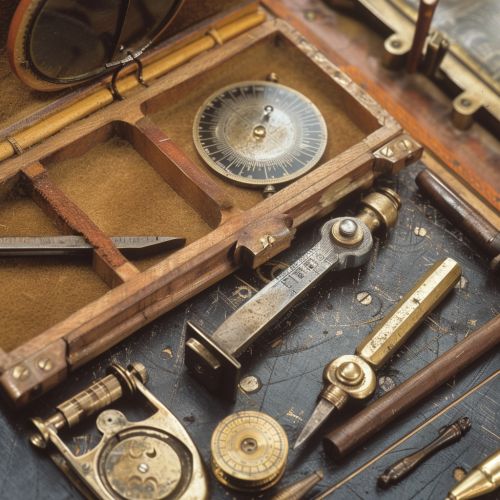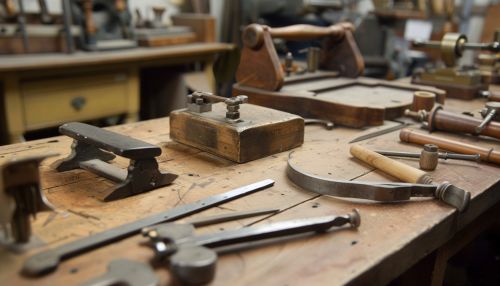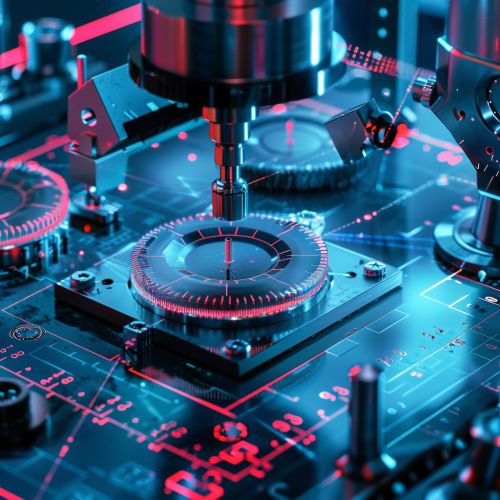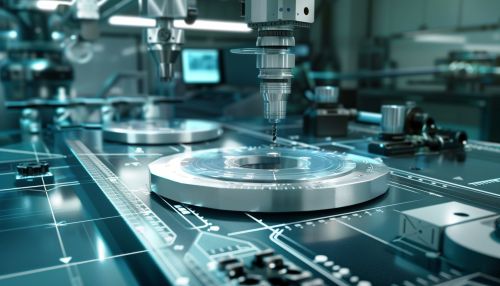Precision measurement
Introduction
Precision measurement refers to the process of quantifying physical quantities with high accuracy and precision. The field of precision measurement is a critical aspect of many scientific disciplines, including physics, chemistry, and engineering. It is also essential in various industries, such as manufacturing, where precise measurements are necessary to ensure the quality and consistency of products.
History of Precision Measurement
The history of precision measurement dates back to ancient civilizations. The Egyptians, for example, were known for their precise measurements in building the pyramids. Over time, the methods and tools for precision measurement have evolved, from simple tools like the ruler and the compass to sophisticated instruments like the atomic clock and the interferometer.


Principles of Precision Measurement
Precision measurement is based on several fundamental principles. These include the concepts of accuracy and precision, the use of standard units of measurement, and the importance of calibration and error analysis.
Accuracy and Precision
In the context of precision measurement, accuracy and precision are two distinct concepts. Accuracy refers to how close a measured value is to the true value, while precision refers to the consistency of repeated measurements. A measurement system can be accurate but not precise, or precise but not accurate.
Standard Units of Measurement
The use of standard units of measurement is a key aspect of precision measurement. These units, defined by international standards such as the International System of Units (SI), provide a common language for scientists and engineers worldwide.
Calibration and Error Analysis
Calibration is the process of adjusting a measurement instrument to ensure its readings are accurate. Error analysis, on the other hand, involves identifying and quantifying the sources of uncertainty in a measurement. Both are crucial for achieving high precision in measurements.
Techniques of Precision Measurement
There are numerous techniques for precision measurement, each suited to specific types of measurements. These include dimensional measurement, time and frequency measurement, and quantum measurement.
Dimensional Measurement
Dimensional measurement involves measuring physical dimensions such as length, width, height, diameter, and thickness. Tools used for dimensional measurement range from simple instruments like calipers and micrometers to advanced systems like coordinate-measuring machines (CMMs) and laser scanners.
Time and Frequency Measurement
Time and frequency measurement is another important area of precision measurement. This involves measuring time intervals and the frequency of oscillating signals. The most accurate time and frequency measurements are made using atomic clocks, which can measure time to within billionths of a second.
Quantum Measurement
Quantum measurement is a cutting-edge field of precision measurement that exploits the unique properties of quantum particles. Techniques in this field include quantum interferometry and quantum entanglement, which can achieve unprecedented levels of precision.
Applications of Precision Measurement
Precision measurement plays a critical role in numerous fields and industries. Some of its key applications include manufacturing, scientific research, and metrology.
Manufacturing
In manufacturing, precision measurement is essential for ensuring the quality and consistency of products. It is used in processes such as computer-aided design (CAD) and computer-aided manufacturing (CAM), and in quality control systems.
Scientific Research
In scientific research, precision measurement is used in experiments and observations to obtain accurate and reliable data. It is a fundamental aspect of disciplines such as physics, chemistry, and astronomy.
Metrology
Metrology, the science of measurement, relies heavily on precision measurement. Metrologists develop and maintain the international standards for measurement, and work to improve the accuracy and precision of measurement techniques.
Future of Precision Measurement
The future of precision measurement lies in the development of new technologies and techniques. Quantum measurement, for example, holds promise for achieving unprecedented levels of precision. Similarly, advances in nanotechnology and materials science could lead to the development of new measurement instruments with superior accuracy and precision.


